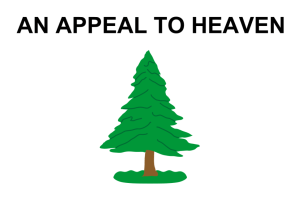THE pitiful posturing of our pusillanimous Premier Starmer, who appears eager to sacrifice our white working-class youth on the altar of globalism, has produced perhaps the most disgusting declaration from this cretinous clown.
We are all aware of his hatred of our traditions and culture, and his disdain for our fears about those who are invading our nation. Now he wants our ill-equipped armed forces to confront Russia and is content for them to become cannon fodder on behalf his WEF/Trilateral Commission/EU chums.
Rudyard Kipling in his 1890 poem Tommy perfectly illustrates the hypocrisy of those in Whitehall with their contempt for the children of others . . .
O it’s Tommy this, an’ Tommy that, an’ “Tommy, go away”;
But it’s “Thank you, Mister Atkins,” when the band begins to play
The band begins to play, my boys, the band begins to play,
O it’s “Thank you, Mister Atkins,” when the band begins to play . . .
For it’s Tommy this, an’ Tommy that, an’ “Tommy, wait outside”;
But it’s “Special train for Atkins” when the trooper’s on the tide
The troopship’s on the tide, my boys, the troopship’s on the tide,
O it’s “Special train for Atkins” when the trooper’s on the tide . . .
Then it’s Tommy this, an’ Tommy that, an’ “Tommy, ‘ow’s yer soul?”
But it’s “Thin red line of ‘eroes” when the drums begin to roll
The drums begin to roll, my boys, the drums begin to roll,
O it’s “Thin red line of ‘eroes,” when the drums begin to roll . . .
While it’s Tommy this, an’ Tommy that, an’ “Tommy, fall be’ind,”
But it’s “Please to walk in front, sir,” when there’s trouble in the wind
There’s trouble in the wind, my boys, there’s trouble in the wind,
O it’s “Please to walk in front, sir,” when there’s trouble in the wind . . .
For it’s Tommy this, an’ Tommy that, an’ “Chuck him out, the brute!”
But it’s “Saviour of ‘is country” when the guns begin to shoot;
An’ it’s Tommy this, an’ Tommy that, an’ anything you please;
An’ Tommy ain’t a bloomin’ fool – you bet that Tommy sees!
Kipling knew the pain of useless sacrifice. His 18-year-old son John died at the Battle of Loos in 1915, and in 1916 he wrote about the death of another young serviceman, 16-year-old Jack Cornwell at the Battle of Jutland, in his poem My Boy Jack.
“Have you news of my boy Jack?”
Not this tide.
“When d’you think that he’ll come back?”
Not with this wind blowing, and this tide.
Recently, whilst on holiday in Spain, I played a game of padel with an exceptionally pleasant young man, aged 16, from Rochdale. His name is Jack. He plans to join the Army. I will do everything in my power to stop Jack and any other young person becoming a pawn in the games of our deluded and abominable establishment.
PS: Richard Tice please take note.










